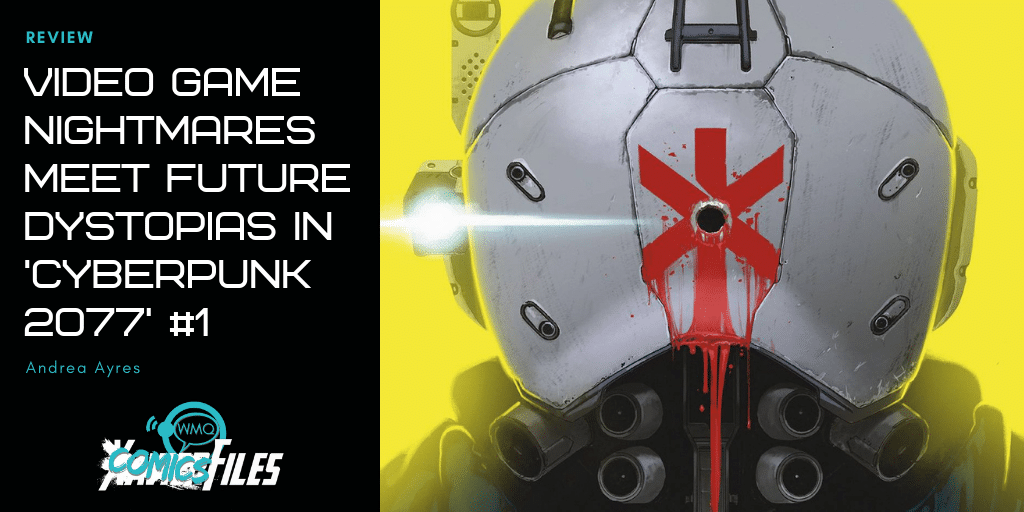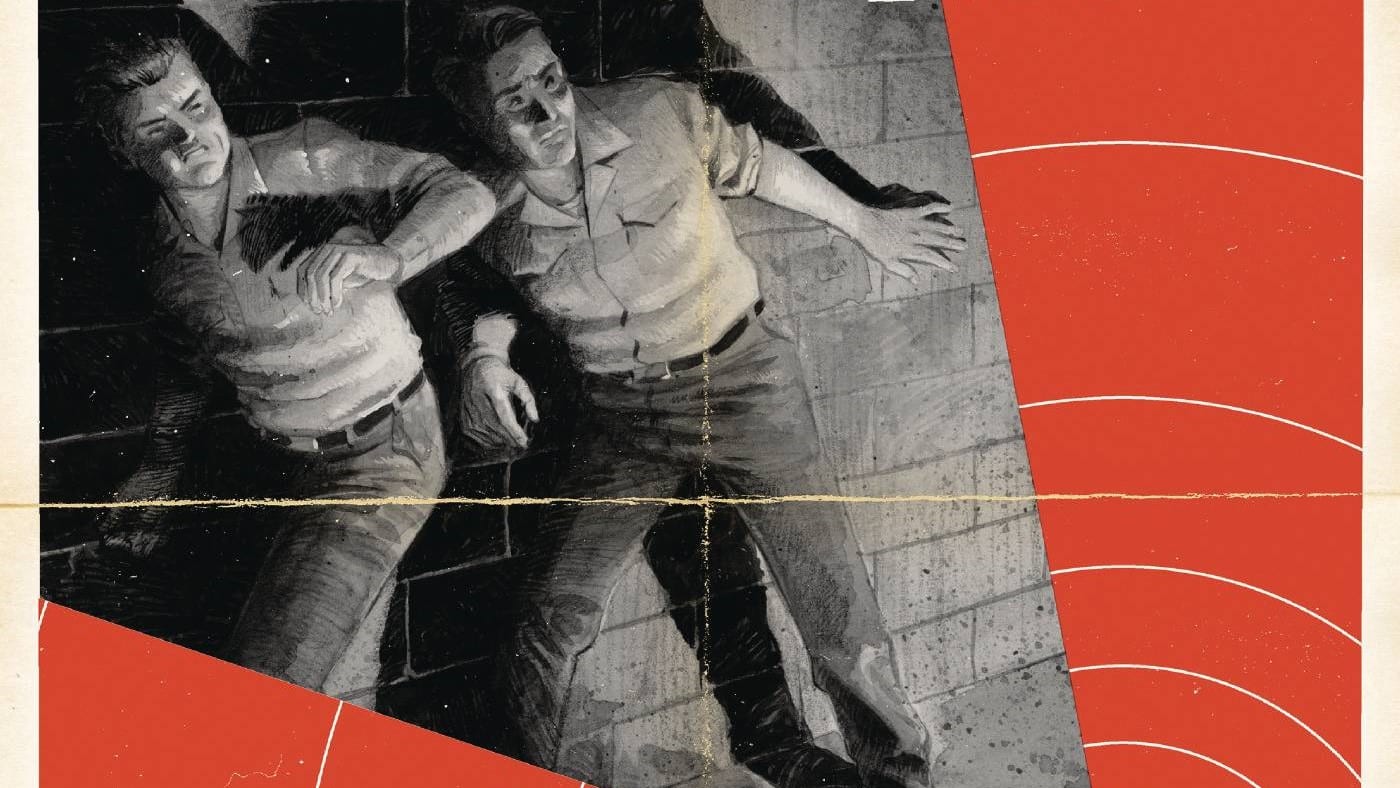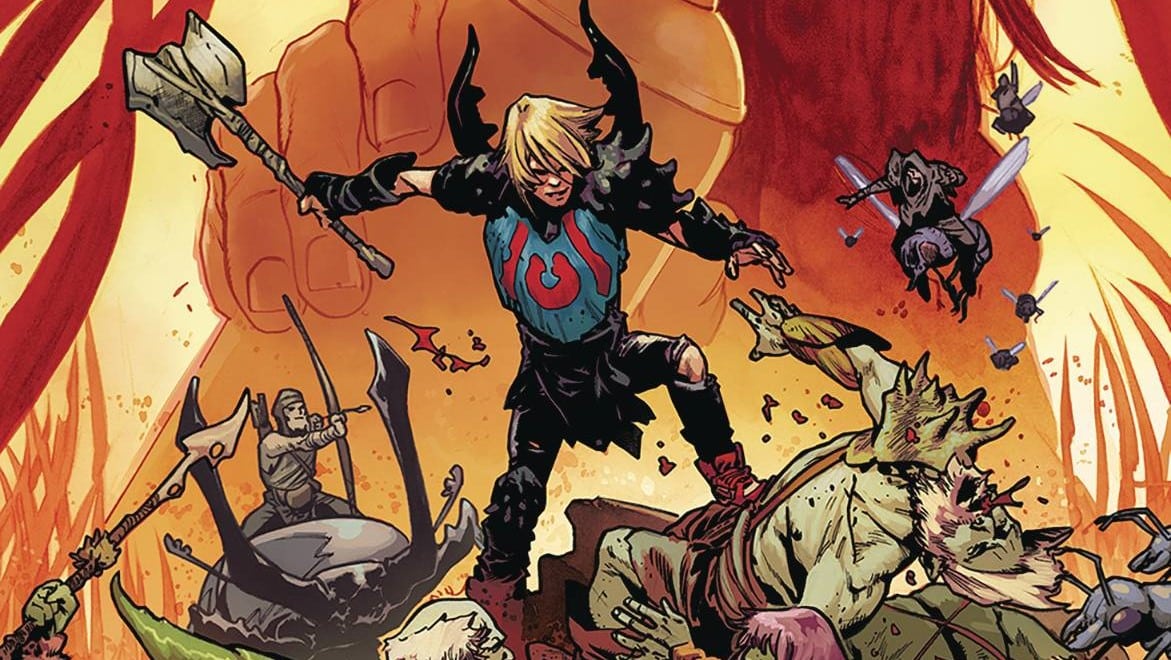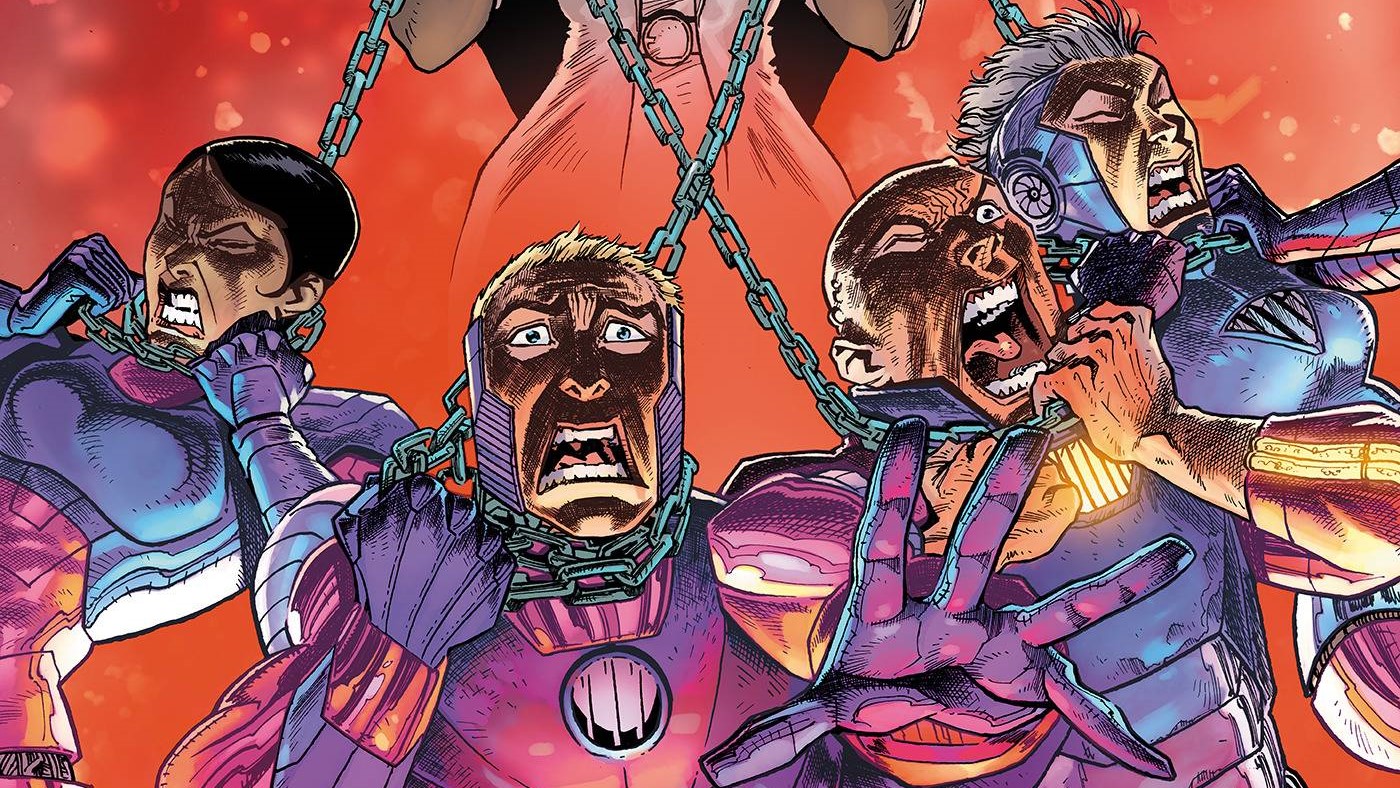
CD Projekt Red’s Cyberpunk 2077 has been one of the most anticipated video games since it was first announced in 2012. Coming off the massive success of The Witcher 3, the company is taking its RPG storytelling skills to a sci-fi universe. Cyberpunk 2077 is a story about a gritty sci-fi future featuring warring criminal organizations, corruption and body modification. In the game, players will take on the role of V, a mercenary whose mission to get a chip from the largest corporation in Night City goes horribly wrong.
Dark Horse teamed up with CD Projekt Red to create a comic tie-in called Cyberpunk 2077: Trauma Team. The first of a four-issue series comes from creators Cullen Bunn (writer), Miguel Valderrama (art), Frank Cvetkovic (letters) and Jason Wordie (colors). Trauma Team is a fine enough story. Readers follow Nadia, an employee with a firm called Trauma Team International. In Night City, corporations and private entities rule. Everything is farmed out to corporations seeking maximum profit.
The opening spread shows Nadia hooked up to various electrodes being questioned by someone who is determining their eligibility to get back to work. Soon we find out they are the last remaining survivor of their six-member team. Nadia’s mission isn’t to help people but rather to save the company and the client, whoever they may be.
If you could pretend that CD Projekt Red wasn’t behind this comic, it’d be a fine story indeed. Nadia deals with post-traumatic stress disorder-related flashbacks and triggers. The comic feels like it’s very much meant for the core gamer audience, at least that’s my read on it. There’s not a great deal of critical engagement with the themes lurking here. That said, it’s the first issue and it’d be hard to do the world-building of Night City, introduce how things work here and do a lot of character exposition.
What we know about Nadia is this, she’s not doing great. Watching your partners get picked off one by one will do that to you. There’s a nice little *gotcha* moment in the end. The flow of the story works, the art works, as a piece it all clicks. Is the comic going to change your life? No. But it is a perfectly fine tie-in comic. Sadly, I can’t remove the knowledge that CD Projekt Red is lurking behind each page.
Thanks, I Hate It
Gaming companies have a tried-and-true tradition of profiting off of social pain without ever actually dealing with the pain they cause. Take *gestures to almost every AAA gaming company* for example. You’ve got rampant sexual harassment at Riot, horrid employment and labor practices by just about everyone in the gaming space, and then you have companies like Ubisoft and CD Projekt Red who want cloak themselves in the veil of wokeness for press until it upsets a critical mass of their fan base and then they pretend like it was never what they meant at all. Every decision we make is political. You cannot divorce the political from your life or your company.
It’s hard to create a dystopian nightmare sci-fi thriller when the one you create at your company is worse than the one in-game. That’s what we have here, however. CD Projekt Red has a well-documented history of transphobia and transphobic comments, this includes Cyberpunk 2077 itself. Employees at CD Projekt Red have lambasted the company for its crunch-like work practices.
“Plus there’s another factor-sometimes we have unique specialties, very unique people, and you cannot clone them. We need them to work on highly specific things. And we need to ask them to spend more time on something highly specific because there’s no other way to do it. It’s mostly R&D or very special requests, like tools.” — Marcin Iwiński, co-founder of CD Projekt Red
Ah yes, love comparing people to tools. Love that for humans.
Listen, this is a fraction of the available information out there about CDPR. There’s a huge history of all the behavior I’ve referenced above and more. From comments about women to poor labor practices to transphobia, this behavior is a feature, not a bug.
Do you know how easy it is to just not tell a transphobic joke? It’s really simple. Time and again, however, CDPR has made extremely harmful comments only to trot out a superficial apology. If they truly felt some sort of responsibility toward the communities they continue to harm, you would believe this would translate into some sort of behavior change, but it doesn’t.
So here’s the thing. You can read the comic. You can buy the game, but do so with the knowledge of who this company is. For me, I don’t need a sci-fi comic from CDPR to tell the story of a private company so interested in maximizing profit, so myopic in its focus of appealing to a very specific kind of client, that they are willing to fuck over everyone else. Ultimately, Cyberpunk 2077: Trauma Team can’t live up to the actual dystopia CD Projekt Red already creates.
Andrea Ayres is a freelance writer and pop culture journalist.






